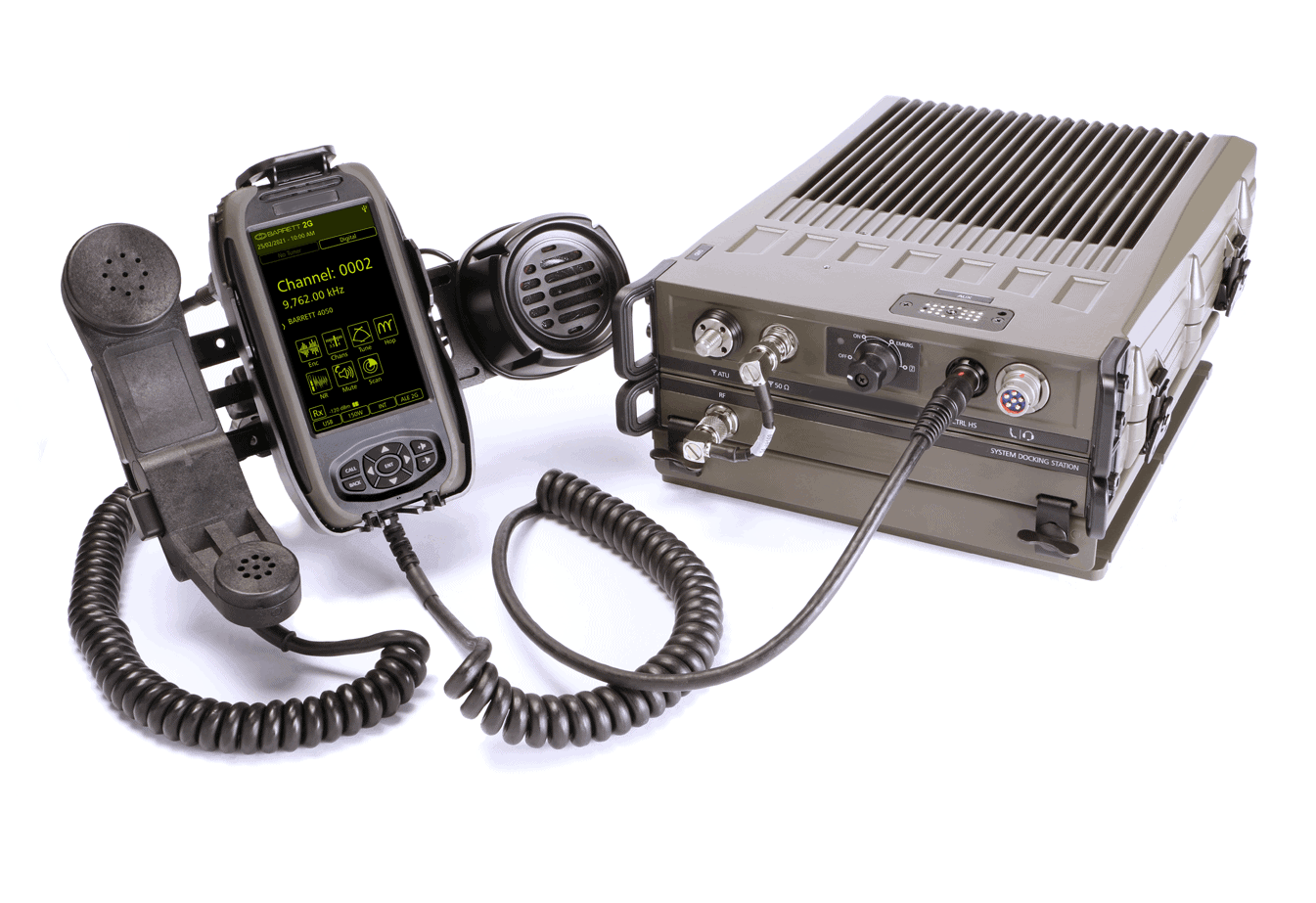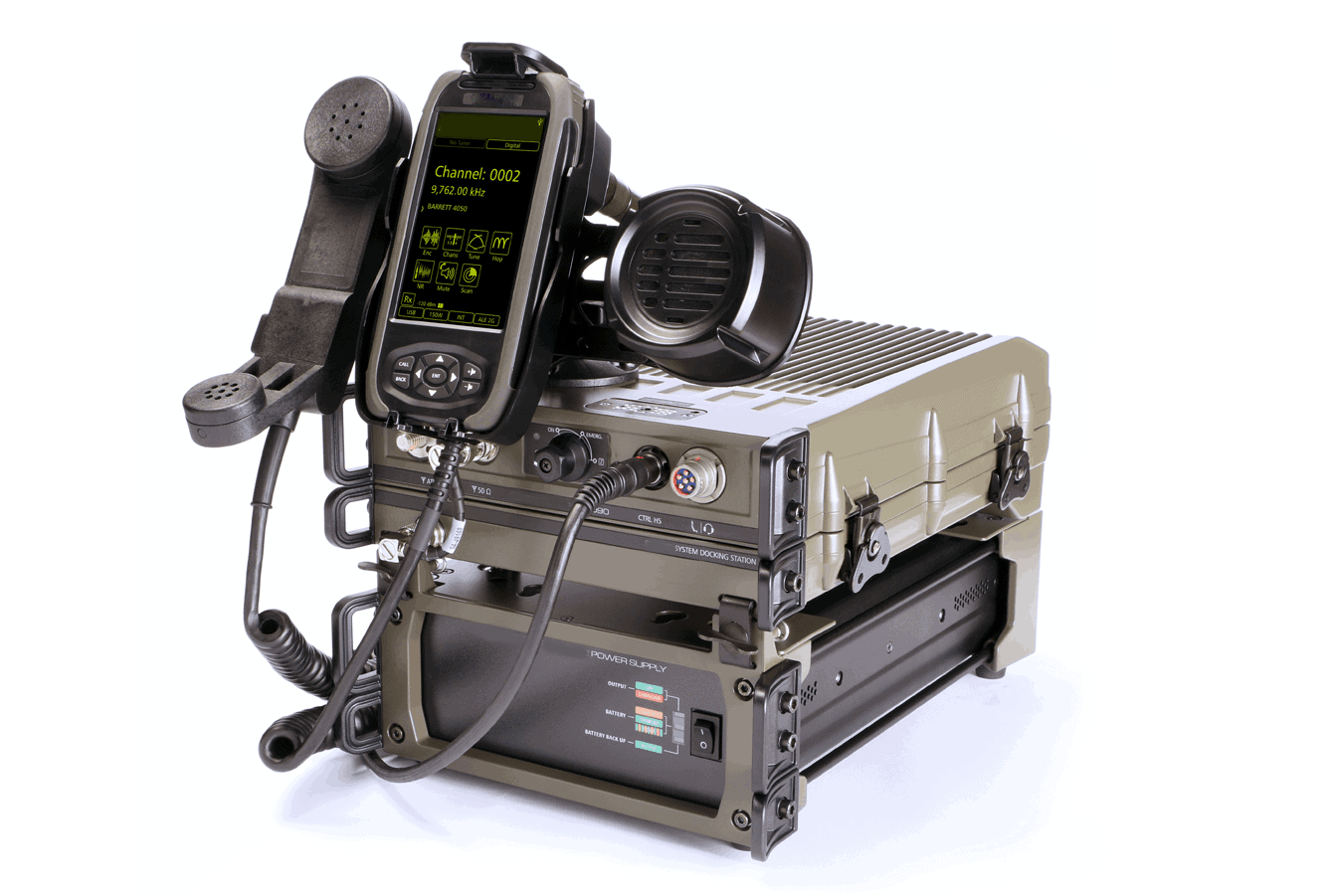

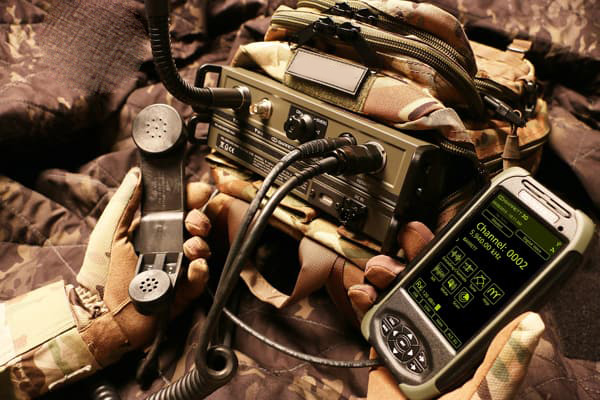
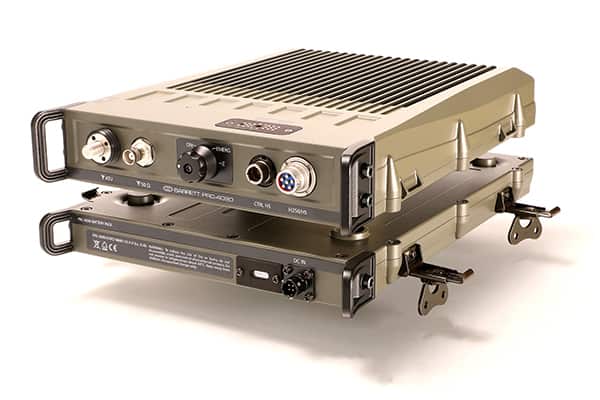




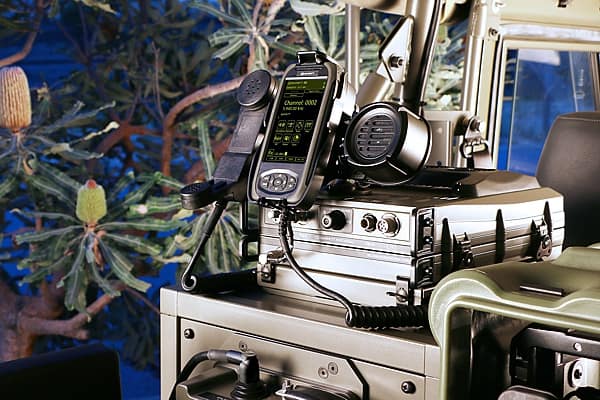
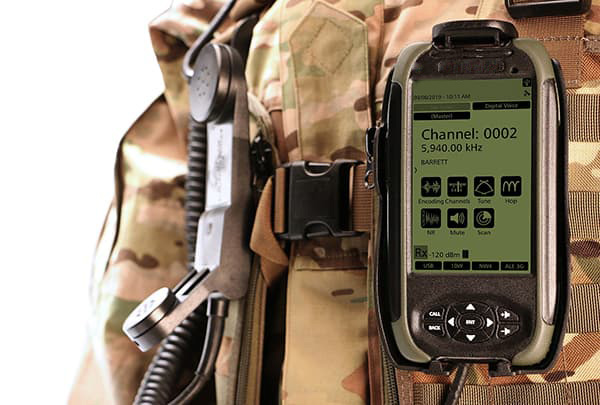




prev
next
Tactical Software-Defined Radio, Redefined
The Micro PRC-786s HF SDR Transceiver is the centerpiece of the Micro range of tactical HF communications equipment. It combines Software-Defined Radio technology with the intuitive “ease of use” that has become synonymous with the Micro name. When teamed with other Micro HF products, the versatile Micro PRC-786s transceiver provides secure email, data transfer and telephone connectivity within a HF network and outwards to international telephone and internet networks.
The Micro PRC-786s transceiver can be controlled from all major mobile and desktop platforms including iOS, Android and Windows devices for wireless voice and radio control via HF remote control app.
Features
Using the latest lightweight alloys,the 786s weighs 3 1. kg , one of the smallest on the market, makes it comfortable to wear and operate when deployed as a tactical manpack. The manpack is 5.65kg with Barrett 16 Ah, quick change Li-ion battery.
The 16Ah advanced Li-ion battery provides the 786s transceiver up to 64 hours Rx (only) operation, and up to 21hours Rx/Tx is possible in a 90/10 duty cycle.
The battery includes inbuilt charge management allowing for charging in operation or separately from any available 24V d.c. source, including solar panels and hand crank generators.
The battery includes inbuilt charge management allowing for charging in operation or separately from any available 24V d.c. source, including solar panels and hand crank generators.
The display is a super bright, high definition 24-bit colour touchscreen which provides optimal viewing ability in all lighting conditions. It provides access to the most advanced and intuitive HF radio interface on the market.
The PRC-786s software has four separate theme modes for use in different ambient light conditions. The screen can also be turned into landscape format via the user interface, if required.
The PRC-786s software has four separate theme modes for use in different ambient light conditions. The screen can also be turned into landscape format via the user interface, if required.
The fully featured tactical control handset is remotely connected to the transceiver unit. This enables the operator to wear the display unit on their person and have full operational control of the manpack without needlessly dismounting the manpack transceiver unit itself. It can also be used in conjunction handsets.
The PRC-786s manpack ships with a handset cradle including Molle attachment for use on webbing or any Molle compatible equipment. The handset can be docked in the cradle in reverse for tactical operation.
The PRC-786s manpack ships with a handset cradle including Molle attachment for use on webbing or any Molle compatible equipment. The handset can be docked in the cradle in reverse for tactical operation.
Digital Voice (DV) can improve the reliability of communications over noisy channels where reception of analogue voice can be very poor. Voice can be improved markedly to the point where barely usable frequencies can be made clear. Secure Digital Voice (SDV) allows users to encrypt their communications over HF radio providing a secure HF network.
Micro offer two SDV encryption standards. A non-export controlled DES 56 vocoder with rates of 700, 1200 and 2400bps or an export controlled AES 256 vocoder with rates of 600, 1200 and 2400bps. Both deliver cutting edge voice communication performance and security at all times.
Micro offer two SDV encryption standards. A non-export controlled DES 56 vocoder with rates of 700, 1200 and 2400bps or an export controlled AES 256 vocoder with rates of 600, 1200 and 2400bps. Both deliver cutting edge voice communication performance and security at all times.
Available hopping rates of 5 or 25 hops per second, the use of an 8 digit hopping encryption key, with a user selectable hopping bandwidth to suit a variety of antenna types means that the system provides excellent protection against electronic warfare (EW) attacks and can be operated for extended periods in the field without synchronisation.
Built into the PRC-786s System Docking Station, the Ethernet accesspoint allows the network to connect directly to PCs. This allows the HF network to integrate with Barrett’s tracking and data options.
Micro’s integrated GPS is built into the handset. The integrated GPS enhances emergency call features and position information on all deployed equivalently equipped HF assets. Combined with Barrett’s GPS Push tracking solution, Barrett can provide unrivaled asset tracking performance over HF radio.
The Micro PRC-786s transceiver provides four and six digit selective call features, including telephone interconnect, SMS text, GPS tracking, status calling, point to point and/or multipoint secure call and remote transceiver disable capabilities.
Multiple data waveform options are provided in the Micro PRC-786s including MIL-STD-188-110A/B (STANAG 4285, 4415, 4481, 4529, 4539), 3G Packet Data (STANAG 4538), CLOVER 2500 and CLOVER 3000. Combined with Barrett’s latest data transmission software and intuitive user interface, these waveforms provide unparalleled performance with “throughput” rates up to and in excess of ,19 200 bps.
Backwards compatible 2nd generation (2G) Automatic Link Establishment (ALE), based on MIL-STD-188-141B (JITC certified) and FED-STD-1045, is available as an option for automatic point-to-point and/or multipoint calling, including telephone interconnect, AMD text messaging and GPS position. For superior fast link setup (FLSU), robust packet data and greater penetration on noisy channels, 3rd generation (3G) ALE based on STANAG 4538 is also available
The digital signal processor (DSP) provides clear intelligible voice communications on analogue circuits through the digital removal of background noise and interference.
Whips and un-tuned wire antennas are accommodated with the inbuilt, fully automatic antenna tuner. Various lightweight broadband and tunable tactical antennas are available.
